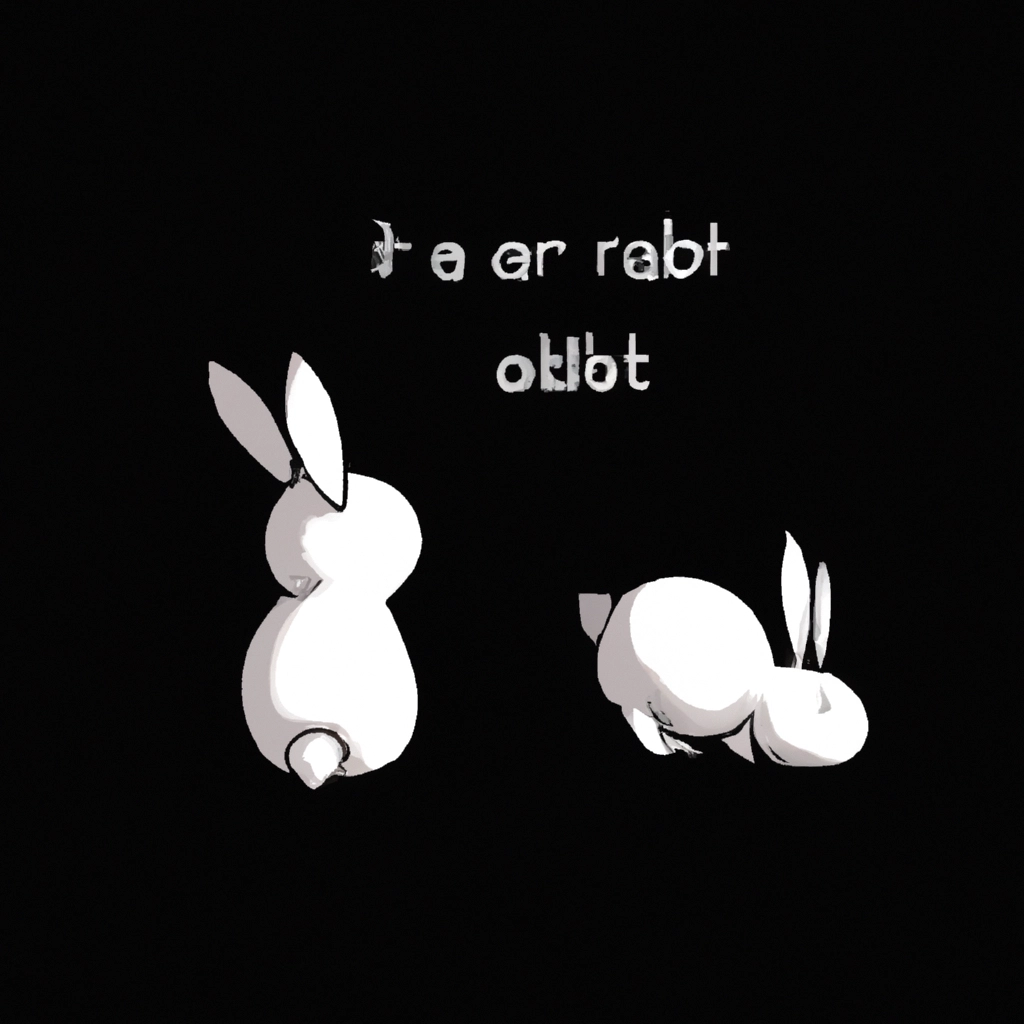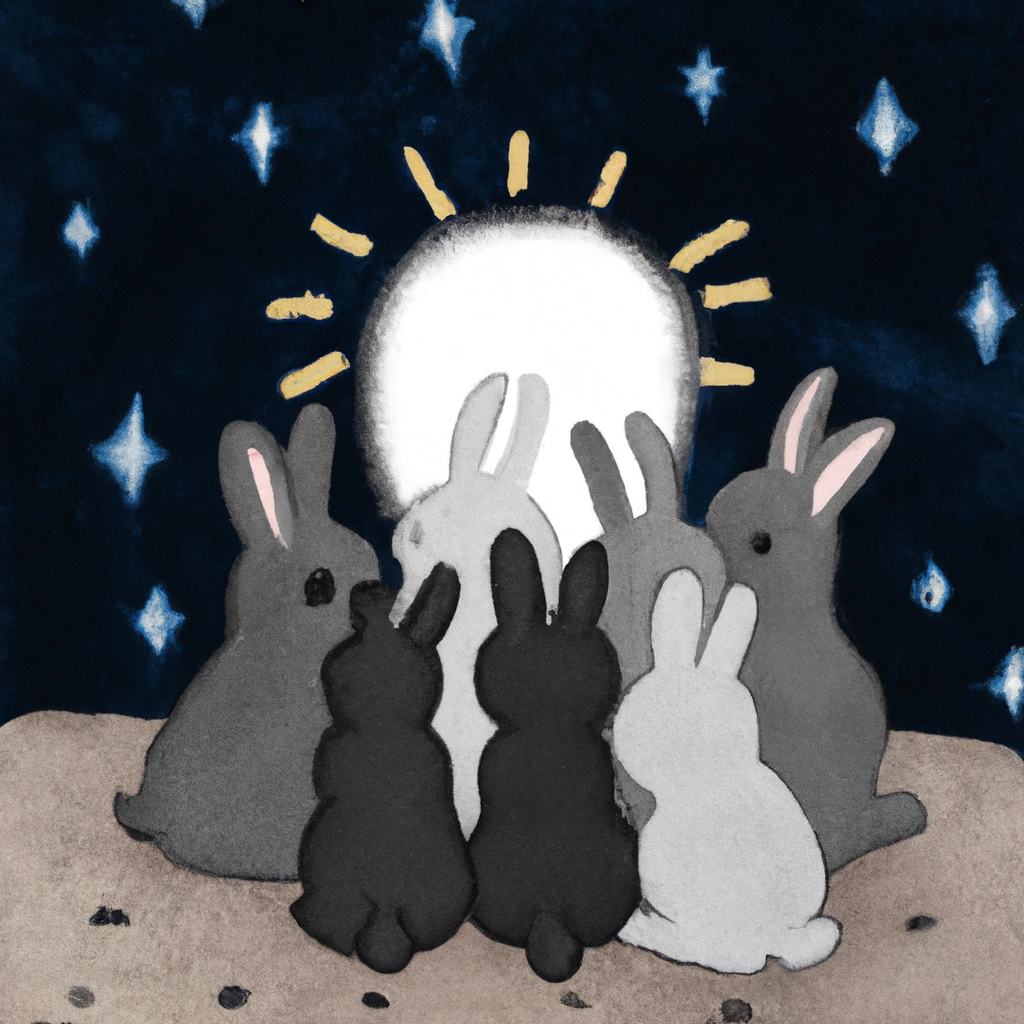| Question | Answer |
|---|---|
| Do rabbits get scared of the dark? | Yes, rabbits can be scared of the dark as it impairs their vision and makes them feel vulnerable. |
| How do rabbits behave in the dark? | Rabbits may become more cautious and jumpy in the dark, relying on their hearing and sense of smell to navigate. |
| Can rabbits adjust to the dark? | Rabbits are crepuscular, meaning they are most active during dawn and dusk, so they are adapted to low-light conditions. |
| Do rabbits need light at night? | Rabbits generally prefer low light at night to help them feel secure, but complete darkness may cause them to feel anxious. |
| What can be done to help rabbits feel comfortable in the dark? | Providing a dim night light or ensuring a quiet and familiar environment can help rabbits feel more at ease in the dark. |
Having been a rabbit owner for years, I’ve spent countless evenings watching these furry friends hop around their habitat. Curiosity struck me one night – do rabbits actually fear darkness, or is this just a widely held belief? This article delves into this topic, combining my personal experiences with the general assumption that twilight brings anxiety to our hoppy companions.
The Behavior of Wild Rabbits in the Dark
Picture the scene: a serene countryside under the moonlight where wild rabbits roam freely. This was where I found myself one night, observing their nocturnal behavior. Contrary to what some believe, these rabbits were active, alert, and seemed perfectly at ease under the moon and stars. This led me to ponder – if wild rabbits thrive in darkness, does domestication alter this behavior?
In researching rabbit habitats and nightly routines, I’ve found that rabbits, by nature, are crepuscular—meaning they are most active at dawn and dusk. Domestic rabbits, while no longer living in the wild, still carry these ingrained behaviors, suggesting they should be content during low light conditions as well.
Comparing my pets’ behavior to that of their wild counterparts, I noticed similarities. In the safety of their home, my bunnies explore and play as dusk falls, hinting that darkness isn’t their foe after all.
Understanding the Sensory Perception of Rabbits
Watching my own rabbits as day turns to night, I’ve noticed they don’t hesitate when the lights dim. Rabbits are naturally equipped with excellent night vision allowing them to navigate the twilight with ease. Add to this their remarkable auditory senses, and you have an animal adept at living in a world with varying light levels.
Their ability to detect predators and move swiftly in low light conditions is a clear indicator that the dark is less a source of fear and more a realm of opportunity for these animals.
Drawing on my observations at home, my rabbits’ responses when the lights go out are ones of anticipation – for the evening meal or a night of play, rather than anxiety.
Debunking Myths about Rabbit Vision in Low Light Conditions
The prevalent belief that rabbits are terrified of the dark is quite mystifying. In my experience, this doesn’t hold true. Rabbits exhibit a sense of normalcy, regardless of the light level, challenging the popular notion.
Curious about where this myth originated, I researched and found that it’s often perpetuated by misguided representations in media and folklore. Contrary to this, rabbits do not seem to inherently fear the dark.
Through keen observation and understanding of rabbit habits, I realized that underestimating a rabbit’s sensory capabilities leads to such misunderstandings regarding their comfort in darkness.
Creating a Comfortable Environment for Rabbits at Night
Ensuring rabbits feel secure at night doesn’t require bright lights. Instead, a calm and consistent setting offers the reassurance they need. I’ve created night-time habitats for my pets with this in mind, noticing they maintain normal behavior with just the moonlight peeking through the window or a soft nightlight in the corner.
Incorporating environment enrichments enhances my rabbits’ sense of security. A cozy hideaway and quiet surroundings contribute to their nighttime serenity.
Adjusting their environment to reflect their natural behaviors rather than human expectations leads to happier, healthier rabbits — as I’ve consistently seen with my own.
Conclusion: Understanding True Rabbit Behavior at Night
Reflecting on my journey from curiosity to understanding, it’s clear that witnessing rabbits in the dark shines a light on their true nature. Rather than accepting myths at face value, I learned from my experiences with these delightful creatures, concluding that the fear they supposedly have of the dark is, in truth, a misconception.
Recognizing and respecting the nocturnal activities of rabbits reinforce the importance of providing an environment that aligns with their natural behaviors.
As I share these insights, I encourage all rabbit owners to explore, observe, and appreciate their pets’ nighttime habits, fostering a deeper bond and better care for these loving companions.
Frequently Asked Question
-
How can I help my rabbit feel more secure at night?
One way to help your rabbit feel more secure at night is by providing a cozy and secure enclosure for them to sleep in. This can include a comfortable bed, hiding spots, and perhaps even a blanket or cover to create a sense of security and privacy. Additionally, you can try placing familiar objects, such as their favorite toys or a piece of your worn clothing, in their enclosure to provide a comforting scent. Finally, it’s important to establish a consistent nighttime routine and avoid sudden loud noises or disruptions that could startle your rabbit and make them feel less secure. By creating a safe and peaceful environment, you can help your rabbit feel more at ease during the night.
Another way to help your rabbit feel secure at night is by providing them with ample food and water before bedtime. This helps to ensure that they feel satisfied and comfortable, reducing any anxiety about hunger or thirst during the night. Additionally, some rabbits may benefit from having a companion in their enclosure, such as a bonded mate, to provide them with additional warmth and emotional support. It’s also important to make sure that their enclosure is secure from potential predators or disturbances, such as ensuring that doors and windows are closed and that there are no gaps or openings for other animals to access. Overall, creating a safe, comfortable, and predictable nighttime environment can go a long way in helping your rabbit feel secure and at ease during the night.



